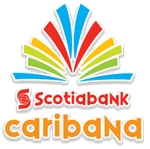Title sponsor for Carnival event in Toronto loses case to get Caribana.com domain name.

Bank of Nova Scotia — aka ScotiaBank — filed the complaint with World Intellectual Property Organization (WIPO) to get the domain name from Working Word Co-operative, which publishes Word Magazine.
Working Word told WIPO that it acquired the domain name in 1997 with the approval of the group that owned the trademark at the time. Due to financial problems with the festival, ownership of the Caribana mark has changed several times.
Bank of Nova Scotia entered into its sponsorship agreement with the current festival organizers in 2008, and claims that it has a licensing right to the Caribana mark.
The WIPO panel found in favor of Working Word, deciding that it registered the domain name in good faith in 1997 with the approval of the event’s organizers. The organizers frequently sent event information to Working Word for inclusion on the web site.
This case brings up an interesting point. I see trademark licenses handled in different ways when it comes to UDRP cases. Often times a panel will find that the owner of the mark, not a limited licensee, should bring the case. Here, if ScotiaBank had won the case, what would happen when it was no longer title sponsor of the event?






Thanks so much for pointing out this decision, Andrew!!
As a Torontonian and dare I say, customer of Scotiabank, and someone who has attended Caribana since a child since it falls on my birthday every year, this is a very interesting case.
From a legal perspective, I liked how the panel refused to lengthen and complicate the proceeding by disallowing “additional submissions” as there were not exceptional circumstances presented. This is the proper interpretation of the Rules, and in stark contrast to the NAF which purported to have made its own rules up which are in fact contrary to ICANN’s own rules, i.e. they allow additional submissions, for a price.
I found however, that the substance of the decision was just flabbergasting! A sponsor may have a license to use the mark in advertising etc., but it is not the mark owner! Unless the mark owner has specifically licensed and directed a complainant to seize a domain name through a UDRP, how can a mere sponsor grab the domain name for itself!??? This is absolutely ridiculous.
That is why I am more surprised by this decision than I have been in nearly every other decision I have ever seen in the last 10 years. I would have thought that it was SO simple to rule against this complainant because the bank did not have standing. It was not the mark owner and from the decision, apparently did not provide any evidence that it was entitled by its mere sponsorship to seize the domain! And as the respondent pointed out, there are 5 major banks in Canada, and each one of them has at one time taken a turn in sponsoring the event…Scotia was only the latest and had only a 2 year term of sponsorhip….So what the hell would the bank have done with it after its sponsorship was up? This is the WORST case of RDNH I have ever seen. Period.
“Here, if ScotiaBank had won the case, what would happen when it was no longer title sponsor of the event?”
A perceptive question, Andrew.
Some panelists will consider that a licensee “has rights” in the asserted mark, and proceed, because they are bound and determined to get that awful cybersquatter. Few panelists have considered your point here, which is, if you were the trademark owner, would you want your licensees running around scooping up domain names in the UDRP, and thus obtaining leverage in future negotiations relating to the license or, worse, in the event of termination of the license?
If the license is terminated, the TM owner is doubly screwed, since acquisition of the domain name via the UDRP is not going to be found as “bad faith registration” by a UDRP panel.
As the current Chair of the CARIBANA™ Arts Group (formerly the Caribbean Cultural Committee), the organization that founded (in 1967), developed and still owns the CARIBANA Festival and the CARIBANA™ trade name, I am completely dumbfounded. Why/How on earth did Scotiabank get the idea that it could proceed with such a case without informing the owner of the trade name?
The Festival Management Committee only manages the Festival. Despite being arbitrarily put in place by the City of Toronto, it does not own the CARIBANA™ Festival or the trade name.
It was authorized to police the use of the trade name and take steps to recover caribana.com from Working Word. However, it seems as if the managers have made a complete mess of things by not informing the OWNER that a case was being brought against Working Word. Neither Scotiabank nor the FMC could have provided the historical background or the facts of the CCC/Working World relationship.
What makes matters even more interesting is that the Festival Management Committee does not have a valid licence to operate the CARIBANA™ Festival.
The CARIBANA™ Arts Group will take the necessary steps and hold parties accountable for loss of intellectual property and brand damage.
I am left to wonder if Scotiabank and the FMC set out to screw the CAG (owner of the mark), or if Scotiabank set out to screw everyone else.
To date, the FMC has not informed us of this situation. Thanks to your publication for making the information known.
Hi Zak and Andrew, give me a call. 647-225-8977